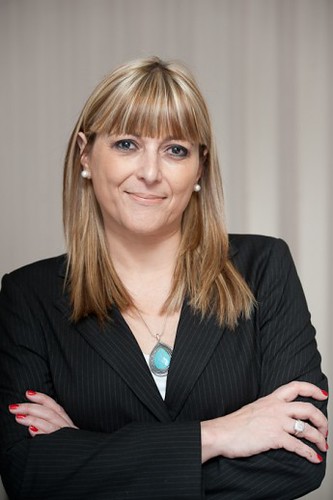
 The Knight Center for Journalism in the Americas has published its most recent e-book in Spanish, the second edition of “Digital Tools for Journalists,” by award-winning Argentine journalist Sandra Crucianelli.
The Knight Center for Journalism in the Americas has published its most recent e-book in Spanish, the second edition of “Digital Tools for Journalists,” by award-winning Argentine journalist Sandra Crucianelli.
Click here to download for free this book in PDF format from the Knight Center’s digital library.
“Digital Tools” is a broad-reaching update of the book’s first edition, which was published in 2008. The new version includes a new chapter on data journalism, addresses the many advances in tools and technology that have emerged in the last six years, and makes a stronger emphasis on techniques and resources used to search and process information.
“This book is a guide, it does not pretend to be a list of instructions that should be strictly followed. Instead, I hope that these tips will light the way for reporters working in a digital environment,” Crucianelli said.
Even though there are many other tools available that were not mentioned in the book, Crucianelli selected those that are free, available in Spanish and/or don’t need to be downloaded; that is to say, that they are available to use online.
“We are aware that journalists in Latin America cannot always subscribe to paid services, cannot always download programs to their work computers and that a high percentage of them do not read in English. That’s why the selection of the tools (mentioned in the book) were based on those criteria,” she said.
The new edition of “Digital Tools” also seeks to be an accurate reflection of journalism’s current challenges and opportunities, like the proliferation of citizen journalists and the need for each professional journalist to take advantage of the digital tools available to investigate, filter, present and share data.
The book covers topics like data journalism, different search engines, Google and its other products, tips on how to explore the deep web, social media for journalists and fact-checking information found on these platforms, infographics and data visualization, the Open Data movement, news apps, mobile journalism and basic Excel skills.”
The manual also includes tools to share audio and music, creating online surveys, setting up video conferences, create timelines, extract data from PDFs, edit images online, send emails anonymously and keep safe online.
This is the Knight Center’s twelfth publication in its digital library, which has been used by thousands of journalists in the American continent. Other books include: “Media Coverage of Migration in the Americas,” “The Ten Best Practices for Social Media,” “Ethical Guidelines for Online Journalism,” and “Coverage of Drug Trafficking and Organized Crime in Latin America and the Caribbean.”
The Knight Center launched the first edition of Crucianelli’s “Digital Tools for Journalists” in 2008 in both Spanish and Portuguese.
This second edition was coordinated in 2013 thanks to a collaboration between the Knight Center and the IREX/USAID Mozambique Project. A Portuguese edition, specially designed for Mozambique, will be published shortly.

Sandra Crucianelli is an award-winning journalist who has specialized in investigative and precision journalism, with an emphasis in digital sources and database journalism. Since 2004 she has taught several courses through the Knight Center’s Distance Learning platform. Her last courses with the Knight Center were the successful online course “Digital Tools for Journalists: from web to mobile,” which had 98 journalists from 18 countries, and the Massive Open Online Course (or MOOC) in Spanish “Introduction to Data Journalism,” which attracted around 4,000 students from 60 countries.
She is also a member of the advising council for the Center for Digital Journalism at the University of Guadalajara, Mexico, an instructor at the Media Center in Florida International University (FIU) and founder of Solo Local.Info, a project in hyperlocal digital journalism. She is a Knight International Journalism Fellow that has researched the journalism applications of open data in the last two years.
The Knight Center for Journalism in the Americas was created in 2002 by Professor Rosental Alves, who holds the Knight Chair in Journalism and the UNESCO Chair in Communication at the University of Texas at Austin School of Journalism. Launched with major, multi-year grants from the John S. and James L. Knight Foundation, the Center also has received grants from Open Society Foundations and other donors. The Knight Center also has been sustained with support from the University of Texas at Austin’s College of Communication, modest foundation grants and the public.
Click here to make a donation and support the Knight Center’s work.